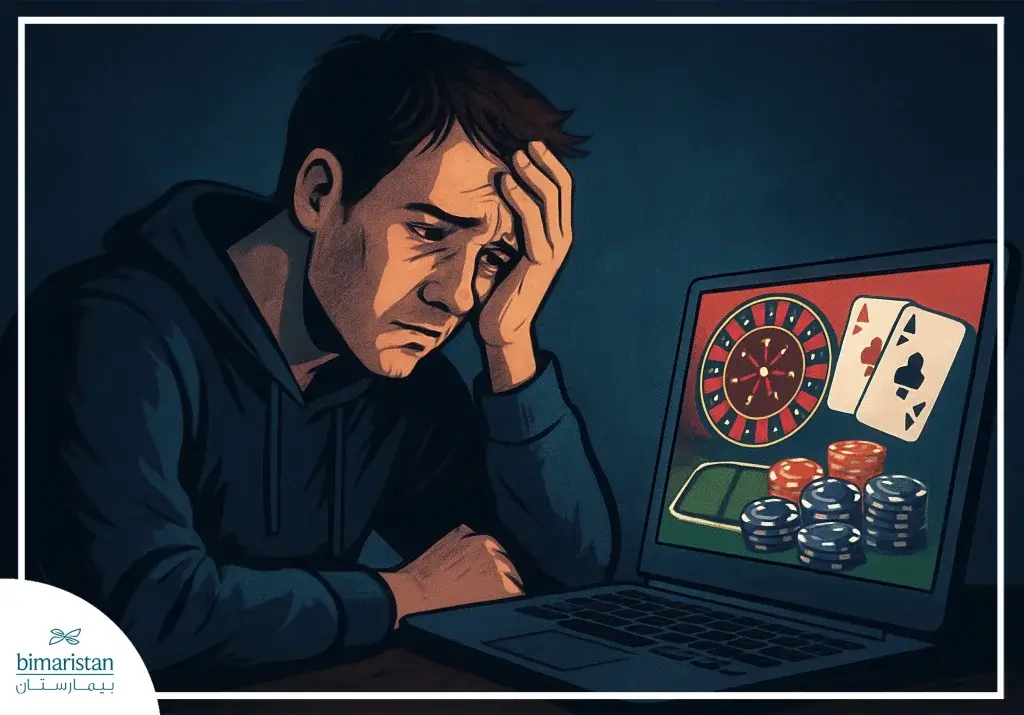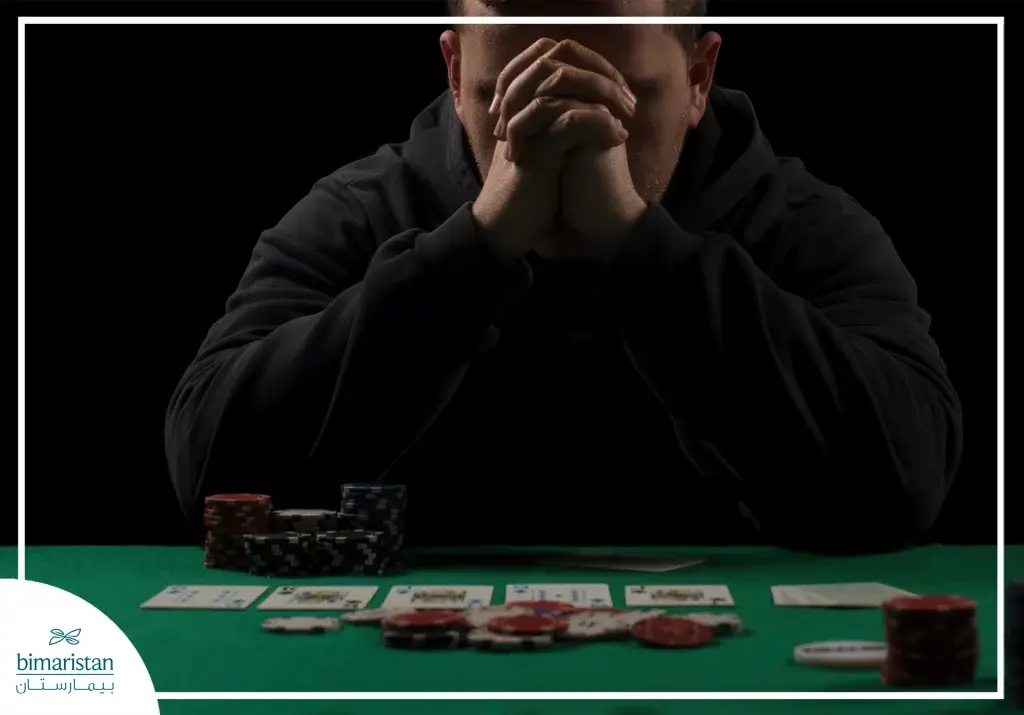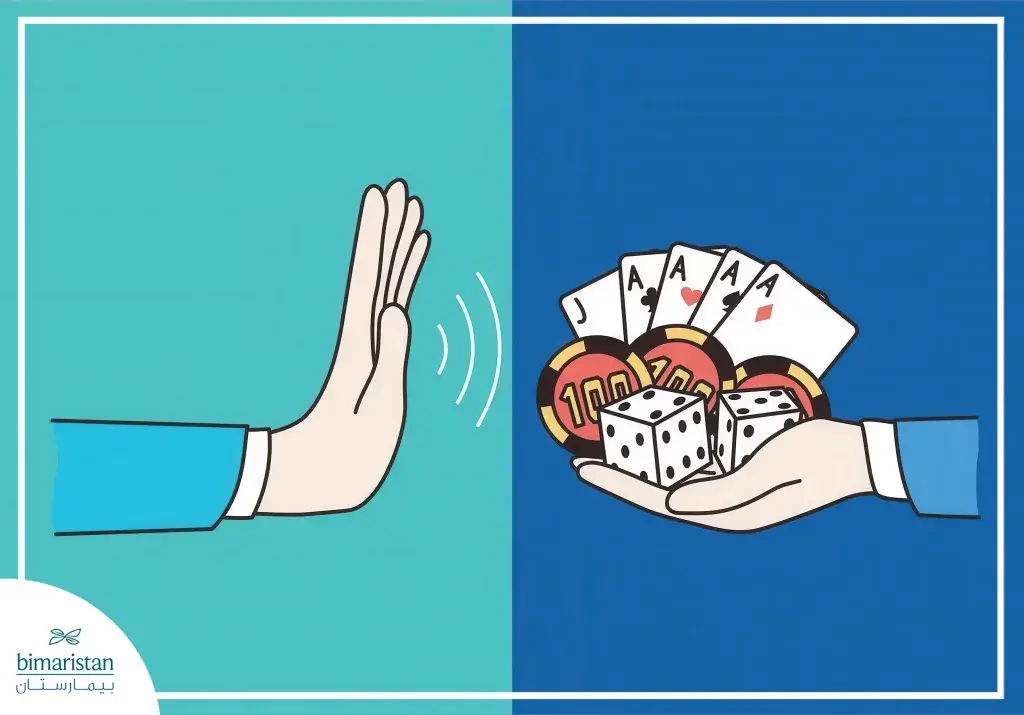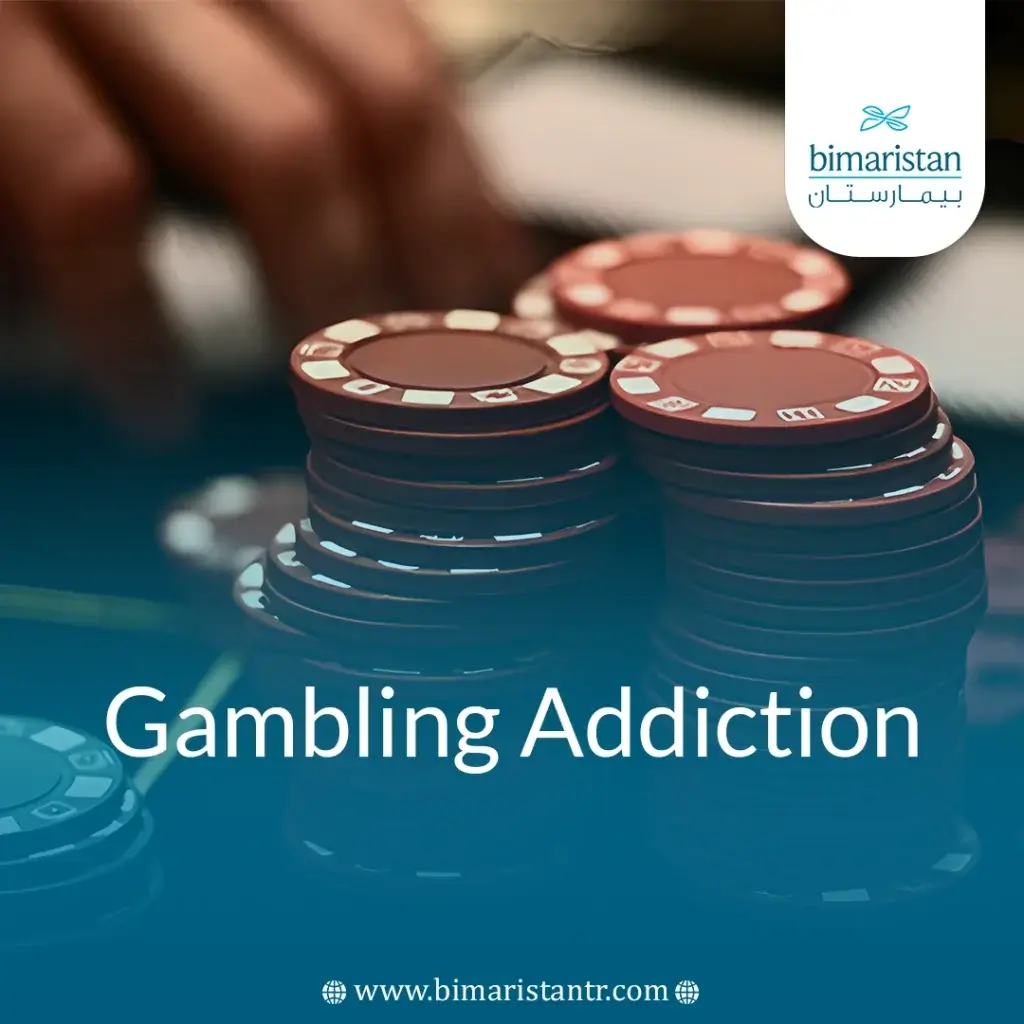Gambling addiction is one of the growing health issues in the world, especially with the rapid spread of electronic gambling among young people, which poses a serious threat to psychological and social health, studies indicate that the number of individuals affected by this disorder is increasing, as about 37 million Turks are addicted to electronic gambling, making it the second most common type of addiction after drugs, this rapid spread prompted the Turkish government to take strict measures to combat this phenomenon.
In the face of this addiction, the Turkish government has taken strict legislative and regulatory steps, as in 2007 Turkey banned all forms of online gambling with the exception of state-owned sports betting (IDDAA), and the Turkish government launched extensive security campaigns against websites and networks operating online gambling, in addition to tightening control over social media platforms that promote these activities, and the first gambling addiction treatment center was established in Turkey in 2021 to provide support and treatment for affected individuals.
Despite these efforts, the challenges remain great due to the ease of access to gambling platforms through evasion techniques such as the use of VPNs, which calls for the development of integrated treatment and awareness strategies that take into account the psychological and social aspects of this disorder, so understanding the local context and paying attention to early interventions is crucial to reduce the spread of gambling addiction and improve the quality of life for affected individuals.
What is gambling addiction?
Gambling addiction is a persistent compulsive behavioral disorder that leads to dysfunctions in personal, social and professional aspects, causing great harm to the individual, his family and his surroundings, including severe financial consequences that may reach family disintegration, due to the development of technology and the spread of digital platforms, the prevalence rates of this disorder have increased, and it is indicated that gambling addiction is not the result of a moral or voluntary weakness, but rather a condition that requires specialized therapeutic intervention.
The prevalence is around 3% in the general population and appears across different economic groups. It is most common among men aged 40-50 years, with a significant increase in the younger population in recent years.
Diagnostic criteria (DSM-5)
Gambling disorder is classified as a disorder associated with addictive behaviors in the Diagnostic and Statistical Manual of Mental Disorders (DSM-5). The disorder is characterized by a persistent and pervasive pattern of gambling behavior, characterized by an inability to control impulses and continue the behavior despite severe negative consequences on personal, social, and professional levels.
A DSM-5 diagnosis requires four (or more) of the following symptoms within 12 months:
- The need to increase gambling amounts to achieve the desired level of excitement
- Withdrawal symptoms such as irritability, anxiety, or insomnia when trying to stop or reduce gambling
- Repeated unsuccessful attempts to control or reduce behavior
- Constant preoccupation with gambling thoughts, such as planning the next session or thinking about how to get money to gamble
- Gambling as a way to escape problems or feelings of guilt and depression
- Trying to make up for losses with more gambling is known as chasing losses, i.e,. The gambler continues to gamble to recover lost money in the mistaken belief that future opportunities will make up for the losses
- Lying to hide the extent of gambling involvement
- Risking important relationships or job opportunities because of gambling
- Relying on others to provide financial support to bail him out of financial crises caused by gambling
The difference between recreational play and compulsive gambling behavior
The fundamental difference between recreational play and compulsive gambling behavior lies in the motivations, control, and influences associated with each. While recreational play is played for fun and enjoyment within certain limits of time and money, the player is able to control his behavior and make the decision to stop easily, without affecting his daily life or relationships.
In the case of compulsive gambling, the behavior turns into an irresistible impulse, where the gambler practices despite the obvious negative consequences, as the person finds himself driven to gamble as a way to escape from stress or sadness and feels an increasing need to bet larger amounts to get the same previous feeling of excitement, over time, his ability to control deteriorates and negative effects begin to appear on all aspects of his life, from personal relationships to financial and psychological status, this behavior is often accompanied by deep guilt or regret but it is not enough to break the cycle.
Gambling addiction types
In the past, gambling addiction was confined to certain places, where access to it requires a deliberate effort and special circumstances, but today the scene has changed, as this addiction has become closer and easier, as it sneaks into our daily lives through digital devices disguised behind attractive entertainment interfaces, which increases the likelihood of engaging in it without awareness or realization of the consequences.
Traditional gambling
Traditional gambling was constrained by time and space; the casino closed at a certain hour, and going there required effort and time, even a person with a gambling addiction had to go through stages before reaching the place of play, giving them a chance to retreat or rethink.
But even with these limits, gambling addiction was destroying the lives of many, as financial losses, lying to family, and deteriorating mental health were all known consequences of this type of addiction.
Electronic gambling
Today, you no longer need to go anywhere to gamble; with the click of a button, you can enter the world of sports betting, virtual casinos, or even video games with gambling elements such as slots.
This is what makes online gambling more dangerous, as it is available all the time. There are no closing times, you can play day or night, and no one is watching, which makes the addiction grow in secret with a false sense of privacy and security, also the ease of digital payment, as using credit cards or e-wallets makes the loss less painful at first, but it adds up quickly.
The impact of online gambling addiction is not limited to financial losses, but extends to the breakdown of family and social relationships due to lying, isolation, psychological issues such as depression and anxiety, and may also include legal risks in some countries, where gambling is illegal.

Signs and symptoms of gambling addiction
The signs of gambling addiction appear through a set of repetitive behaviors and thoughts that affect the individual’s life negatively:
- Constant preoccupation with gambling: Frequently thinking about past gambling experiences and planning future gambles, as well as constantly looking for ways to place bets.
- Uncontrolled financial behavior: Borrowing or lying to get money to gamble, sometimes without the ability to repay or admit the issue.
- Trying to make up for losses: Repeatedly returning to gambling after a loss in order to make up for lost money, leading to a worsening financial and psychological situation.
- Feelings of guilt or remorse: Feeling guilty after gambling sessions, unable to stop despite knowing the negative consequences.
- Negative impact on daily life: Deterioration of social relationships, decreased academic or job performance, and decreased attention to personal responsibilities.
The neurological impact of gambling addiction
Gambling addiction is very dangerous for the nervous system, as it leads to a range of neurological disorders that affect an individual’s behavior and mental and emotional functions.
- Anxiety and stress disorders: The addict experiences high levels of anxiety, especially when unable to gamble or when facing financial losses.
- Impulsivity and poor self-control: The areas of the brain responsible for decision-making and behavioral control malfunction, leading to impulsive behavior without thinking about the consequences.
- Disruption of the brain’s reward system: Gambling stimulates the release of dopamine, leading to a temporary feeling of pleasure, followed by a decrease in the natural response to other rewards such as relationships and achievements.
- Insomnia and sleep disturbances: The addict has difficulty sleeping or interrupted sleep as a result of constant worrying or thinking about gambling.
- Increased risk of suicidal behavior: In severe cases, the individual may feel completely helpless as a result of the accumulated losses, increasing the risk of suicidal thoughts or attempts.
Gambling addiction is a behavioral disorder whose effects are not limited to the financial aspect only, but extend to include deep psychological and social dimensions, as this behavior worsens, the individual suffers from internal disorders that affect his mental health, and his social relationships and daily life are greatly affected, the following are the most prominent psychological and social effects of gambling addiction:
- Depression: The addict feels constant sadness, low motivation, and loss of pleasure, especially after losses or failure to stop gambling.
- Feelings of guilt and loss of control: The individual experiences a constant sense of guilt about their behavior and feels unable to control their desire to gamble.
- The breakdown of family and marital relationships: Compulsive gambling behavior affects trust and communication within the family and can lead to divorce or family estrangement.
- Social isolation: The addict becomes isolated from friends and society, as a result of feeling ashamed or avoiding confrontation, deepening loneliness, and psychological distress.
- Financial issues and bankruptcy: Repeated losses lead to the accumulation of debt, depletion of savings, and sometimes the loss of a business or financial assets.
- Legal issues: In some cases, an addict may resort to illegal behaviors such as fraud or theft to secure money, exposing themselves to legal liability or imprisonment.

Behavioral treatment steps for gambling addiction
Behavioral therapy is an effective recovery option for gambling addiction, as it focuses on modifying behaviors and thoughts associated with addiction and relies on structured steps to ensure sustainable recovery.
Recognize the issue and ask for help
Recognizing the existence of gambling addiction is the first step to effective treatment. This realization requires a decision to stop the addictive behavior and acknowledge its negative effects on mental health, social relationships, and financial status. Seeking help from specialists or social support networks is a crucial starting point towards receiving the appropriate support and starting the treatment process.

Cognitive Behavioral Therapy (CBT) sessions
Cognitive behavioral therapy is one of the most prominent therapeutic methods used in the treatment of gambling addiction, as it aims to identify and modify distorted thinking patterns and behaviors associated with gambling. During these sessions, the addict learns strategies that enable him to develop healthy coping mechanisms to control addictive impulses, which contributes to reducing addictive behaviors and enhancing the ability to face environmental and psychological stimuli.
Replacing gambling behavior with positive activities such as sports, hobbies, or volunteering can help promote mental health and fill the free time that was once dedicated to gambling.
Joining support groups
Support groups play an important role in promoting recovery from gambling addiction. They provide an interactive and safe environment for patients to share their experiences, receive moral support, and learn recovery strategies from others. This affiliation helps reduce feelings of isolation and strengthens commitment to treatment, and allows for the sharing of experiences and strategies that have proven effective in facing relapses and overcoming addiction.
In conclusion, gambling addiction is a complex health and social issue that requires early and comprehensive intervention, including psychotherapy and social support. Awareness of signs and symptoms, as well as the application of effective treatment steps such as cognitive behavioral therapy and participation in support groups, are among the most important foundations for recovery. In light of the increasing prevalence of this phenomenon, especially in environments such as Turkey, it is essential to benefit from specialized medical centers, such as Bimaristan, that provide integrated services, including psychological assessment and occupational therapy, to support the individual and promote sustainable recovery.
Sources:
- NPİSTANBUL Brain Hospital. (n.d.). What is gambling addiction, and how is it treated? NPİSTANBUL
- Smith, M., & Segal, J. (2023, October). Gambling addiction and problem gambling. HelpGuide
